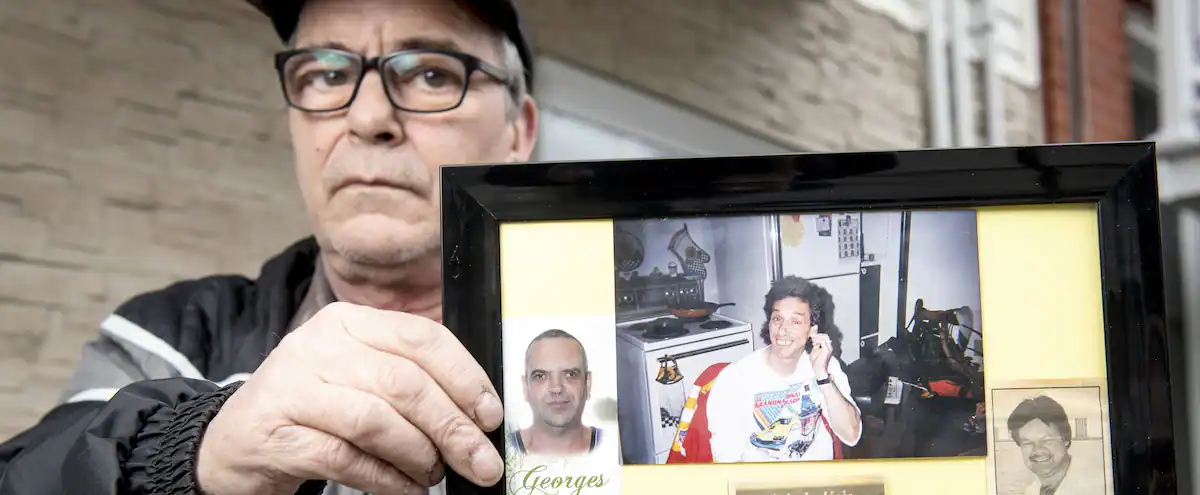A retiree from Montreal who has lost dozens of friends to lung cancer in recent years encourages all smokers to quit for good as soon as possible and get tested.
• Read also: Lung cancer: vaping is not much better
• Read also: Lung cancer: Once home
• Read also: Lung Cancer: Discover It Earlier To Save Patients
• Read also: Lung cancer: especially deadly and insidious
“I lost all my friends, and I keep losing them, always to lung cancer. Eight of my friends died in the last year,” 64-year-old Lucien Bordjese laments.
This retired foundryman is witnessing, in spite of himself, the devastation caused by the deadliest and most diagnosed cancer in Quebec.
“It scares me, because I don’t have any friends anymore. It’s not my life as it used to be,” laments the grandfather of four grandchildren who wants to continue to see them grow up.
He suffers from chronic obstructive pulmonary disease (COPD) himself, including emphysema, and has quit smoking nearly 10 years ago.
“I take care of myself,” he says, adding that even his wife, who smoked up to two packs a day, was able to kick her addiction out a few years ago.
“well done”
“It helped me well […] Everyone should stop,” he says with conviction, his sentence punctuated by a palpable culmination. Today, he lives a healthier life. He eats well, does not smoke, does not drink and exercises.
But he smoked for several decades, like his friends from the small school he loses around him. “Everyone was smoking,” he says, as is his hero Guy LaFleur, who remembers watching him ice skate at the Forum.
Today, he does not hesitate to encourage everyone he meets on the street to quit smoking. “When I see someone smoking in the street, I say to him: What are you doing? Don’t you have enough to live for?” he says, adding with a laugh that nothing could stop him despite his 120 pounds.
Detected early
As part of the high-risk population targeted by the early detection of lung cancer pilot project, Mr. Burdge was screened in the spring.
For great convenience, no cancer was detected. “It was fear,” he explains. Not only because of his history as a regular smoker, but also for his 30 years in a foundry in the dust.
He asks all his friends to imitate him and take the tests before it’s too late. Recently, he said that a dear friend confided to him that he was feeling increasingly weak. Examinations at the hospital revealed not one, but five cancers as the disease spread, and he follows with affection.
Quitting smoking is the best medicine
All doctors agree that the best way to prevent lung cancer is to quit smoking.
“It’s never too late, it’s never too late [pour cesser de fumer] ‘,” insists director of the Smoking Cessation Program at McGill University Health Center (MUHC), pulmonologist Sean Gilman.
In Quebec, there are 10,000 new cases of cancer linked to cigarette smoking each year. It is the main avoidable risk factor. In other words, if there is one thing we can address, it is smoking,” adds Vice President of the Canadian Cancer Society, Diego Mina.
Experts note that several studies show that quitting smoking can restore up to 10 years of life.
worst years
Pulmonologist Simon Martel, MD, a physician at the University Institute of Cardiology and Pulmonary Diseases of Quebec (IUCPQ), believes that the province is currently experiencing its worst years in terms of lung cancer diagnoses.
It will be necessary to wait another 10 to 15 years before the beneficial effect of the decline in smoking begins to be felt further and further.
Since the first decade of the 21st century, anti-smoking laws have helped reduce the number of smokers dramatically. On the other hand, the ds Martel notes that an aging population is another risk factor for cancer.
More flexible
for ds Shawn Gilman, Prevention remains key in the fight against lung cancer.
It also asks the government to better compensate medicines for smoking cessation. Currently, a patient can get it for free for 24 consecutive weeks in a year.
However, treatment is difficult and must often be interrupted by those who wish to quit smoking for good. He argues that the government should show more flexibility.
– In collaboration with Nora Lamontani

“Subtly charming problem solver. Extreme tv enthusiast. Web scholar. Evil beer expert. Music nerd. Food junkie.”

